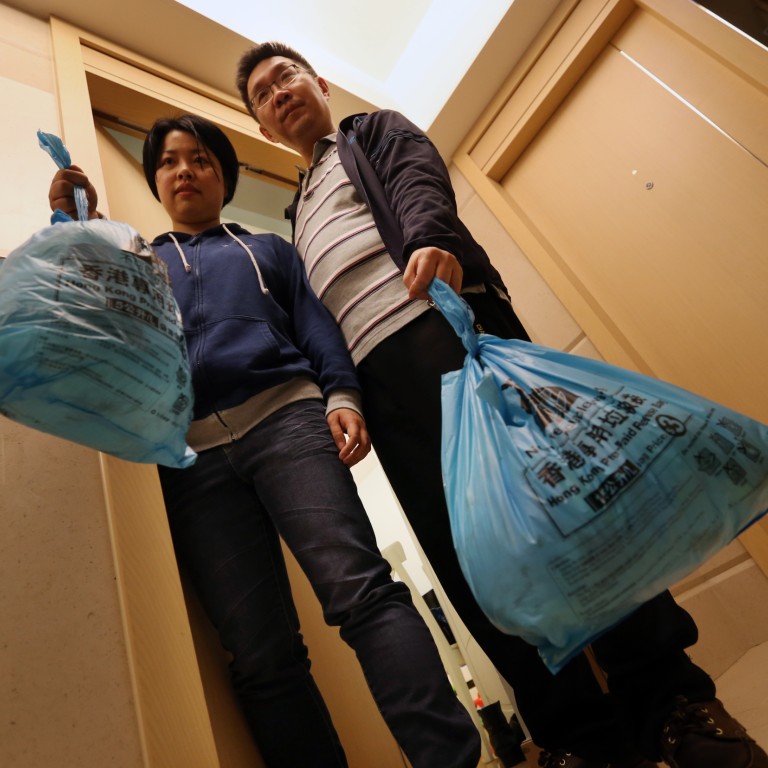
Pay-per-throw experiment in Kowloon successfully cuts household waste: green groups
A simulation in which building residents were charged for their rubbish bags reduced the amount they threw away by 30 per cent
A simulated pay-as-you-throw scheme for household waste showed results that were anything but rubbish, with the amount of trash sent to landfills reduced by 30 per cent and the amount of material recycled increasing fivefold.
Some 90 per cent of 88 households at a building in Tai Kok Tsui took part in the pilot exercise, organised by environmental groups Friends of the Earth and Greeners Action last month.
The experiment was conducted as the government considers how best to introduce paid waste removal to tackle a low recycling rate, at a time when landfill sites are near capacity and plans for a waste incinerator remain hugely controversial.
"The campaign was very successful. It shows that Hongkongers are ready for a solid-waste charging scheme," Greeners Action executive director Angus Ho Hon-wai said.
The groups gave each participating household 15 large plastic bags to which they attached a nominal value of HK$3, and 45 smaller bags valued at HK$1. While no money changed hands, the experiment did force households to think about how they would behave if a fee for waste disposal was introduced.
Before the scheme was conducted, the households involved threw away 110kg of rubbish a day between them, on average. In the first week of the scheme, the average amount of waste dropped 19 per cent. In the last week of the month-long scheme, the amount was down 30 per cent.
"We talked to the households after the campaign and 78 per cent told us their awareness of waste reduction had been boosted through the campaign," Ho said.
The campaign also saw the groups place recycling boxes in the building and brief residents on the importance of recycling.

The government's Council for Sustainable Development will complete a four-month consultation on charging for waste disposal on January 24. It is considering several models, including the one simulated in the experiment, whereby households would dispose of rubbish in bags bought from convenience stores for a price that reflected the cost of disposal.
Frances Yeung Hoi-shan, senior environmental officer for Friends of the Earth, said the government must explain why charges were needed.
"The public needs to know that the purpose of the scheme is not to collect more money from them," Yeung said. A similar scheme had run successfully in Taiwan for a decade, she added.
Environment minister Wong Kam-sing has pledged to introduce a waste disposal charge by 2016 and to cut the amount of rubbish produced by 40 per cent by 2020.

